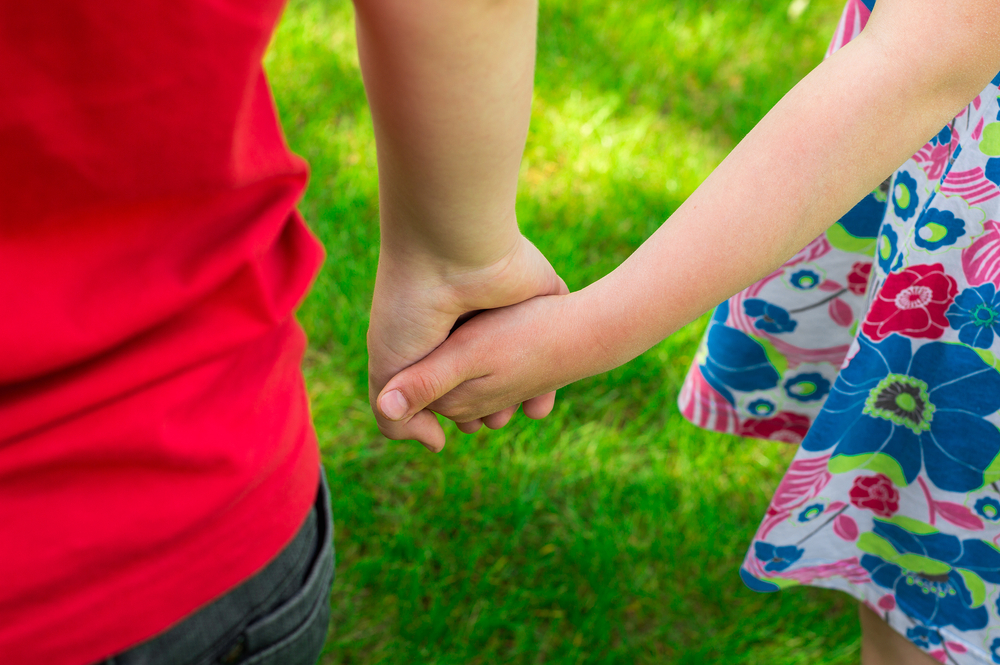Hurricane Harvey Leads to Two Young Friends with Batten Disease Reuniting at Memphis Hospital
Written by |

Two 5-year-olds participating in a trial evaluating the first treatment for Batten disease were reunited at Le Bonheur Children’s Hospital in Memphis after Hurricane Harvey almost suspended the treatment for one of them.
Elle Gieselmann and Micah McCorkle are among the few Americans receiving the enzyme replacement therapy. The U.S. Food and Drug Administration approved the treatment, known as Brineura (Cerliponase Alfa), in April of this year. Although the therapy is now approved, an extension trial of its long-term use is continuing.
Batten disease is an inherited lysosomal storage disorder. This means that genetic mutations interrupt cells’ ability to dispose of waste, such as proteins and lipids, that accumulate inside cells.
Brineura’s active ingredient, cerliponase alfa, is a recombinant — or lab-produced — form of the PPT1 enzyme. The recombinant enzyme overcomes the problem of genetic mutations producing a faulty version of the enzyme.
Doctors inject Brineura into brain fluid. They recommend 300 mg once a week for children over the age of 3, followed by an infusion of dissolved minerals called electrolytes.
Physicians also recommend that patients take antihistamines or corticosteroids 30 to 60 minutes before an injection. It’s important that blood pressure and heart rate are monitored before, during and after an injection.
The Gieselmanns, who are from Memphis, brought Elle to Columbus, Ohio, last year for a clinical trial of Brineura as a Batten treatment. That’s where she met Micah.
Both Elle and Micah participated in the Phase 1/2 main trial (NCT01907087) and continue to participate in the extension study (NCT02485899). The trials involve 23 children with Batten disease, also known as Late-Infantile Neuronal Ceroid Lipofuscinosis, or CLN2.
As part of the extension study, Elle is coming to Le Bonheur Children’s Hospital every two weeks to receive her dose of Brineura. Micah has been receiving his dose every two weeks, too — in Houston. Until Hurricane Harvey slammed into the city, that is.
“We’ve definitely seen the progression [of the disease] slow” since the trial began, Elle’s dad, Frazer, said in a News Channel 3 story. “I would say if it was going 90 miles per hour, now it’s at three to four miles an hour. She’s a happy kid, so we’re going to do all we can to fight for Elle.”
When Elle went to Le Bonheur Children’s Hospital to receive her latest dose, she was surprised to find Micah’s family. It turned out that as Harvey was bearing down on Houston, medical officials asked hospitals there to suspend a lot of treatments. A key reason was to limit hospital staff and patients to reduce the risk of Harvey-related casualties.
When Micah’s family asked BioMarin Pharmaceutical, the company conducting the trials, for an alternative treatment facility, the company directed them to Le Bonheur. Micah ended up right next door to Elle and the Gieselmann family.
As the families were catching up and promising each other visits, hospital officials locked down the facility because of a tornado warning. It was a surreal moment, given that the McCorkles had just left a hurricane-ravaged city.
During the lockdown, Micah and Elle warmed the hearts of everyone at the hospital.
Patients and families had to wait in a hallway until disaster officials lifted the tornado warning. Elle and Micah wouldn’t leave each other’s side, sharing a frightening moment that will surely strengthen their friendship.
“It was really good to see them interacting,” said Micah’s mom. “When we were in Ohio, they did those types of things, so it was really nice, really refreshing to see them still be able to interact in a way that they can.”
Elle’s dad said friends’ support has been critical after all they’ve gone through, so they relish special moments with friends — the kinds of moments that Elle and Micah shared during a tornado scare at Le Bonheur Children’s Hospital.




